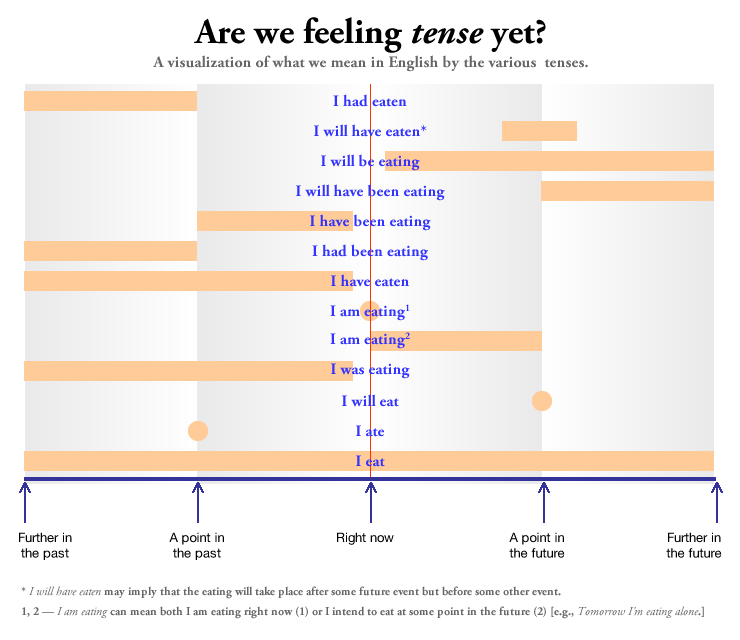Non-native speakers often get confused about what the various tenses and aspects mean in English. With input from some of the folk here I've put together a diagram that I hope will provide some clarity on the matter.
I offer it as the first answer to this question. Consider it a living document. Input is welcome, and good suggestions will be incorporated into the diagram.
Nota bene: What this is not is a discussion of whether there are more than two tenses in English. We have a dedicated question for that, to which this question is not intended to supply arguments one way or the other. Here, the aim is to provide an overview of what constructions English-speaking people use for conveying information about actions referring to past, present, and future, and to provide it first and foremost to precisely the people who are likely to use "tense" as a catch-all term in their search, rather than to linguists who know better.
Breaking News There is now an excellent ELU blog article titled How We Talk About Future Situations. It is highly recommended reading.

